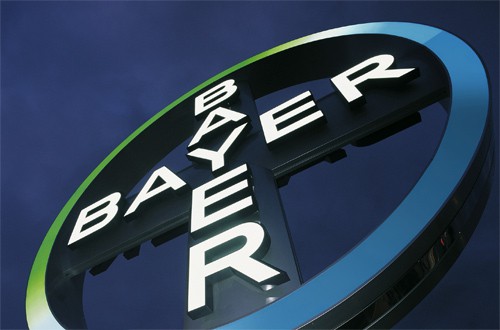
Bayer has reported positive data on larotrectinib, one of two cancer assets licensed from Loxo Oncology in a $1.5bn deal last month, in children with a particular form of cancer.
It’s the first piece of clinical data to be reported for larotrectinib since the licence was agreed and will please Bayer, which paid a whopping $400m upfront for the two assets, even if the data is from a small study that enrolled 24 patients.
The TRK inhibitor achieved a 93% overall response rate in 17 evaluable patients in the SCOUT trial, which involved children with cancers associated with TRK fusions, a molecular signal linked to uncontrolled cellular growth that is evident in a wide range of tumours, including infantile fibrosarcoma, thyroid cancer and various soft tissue sarcomas, but collectively account for less than 1% of all cancers.
Among these, 80% were partial responses and 13% were complete responses, as assessed by an independent review committee, according to data presented at a medical conference in Atlanta this week. Moreover, responses with the drug were early – typically within the first two to three months of starting treatment – and in four patients have lasted for over a year with another 12 extending beyond six months.
In all but one cases the 17 patients have remained on drug therapy or received surgery with the intent of curing the cancer, according to the investigators.
“Targeted therapy success stories in paediatric oncology are uncommon, and larotrectinib has invigorated the paediatric oncology community,” said SCOUT lead investigator Brian Turpin of Cincinnati Children’s Hospital.
“Larotrectinib’s near universal response rate and compelling durability of response in paediatric patients with TRK fusion cancers is likely to be practice changing,” he asserted.
Turpin is also encouraged by a response seen in a patient with brain cancer (glioblastoma), which he said, “highlights the potential of larotrectinib in TRK fusion central nervous system tumours”.
A phase 2 portion of the paediatric study in infantile fibrosarcoma and other TRK fusion cancers – both CNS and non-CNS – is now getting underway at a recommended dose of 100mg/m2 twice-daily.
Larotrectinib and stablemate LOXO-195 are at the heart of Bayer’s ambitions in oncology after it set up a cancer-focused strategic business unit earlier this year, along with earlier-stage projects in oncogenic signalling, antibody-drug conjugates, targeted thorium conjugates (TTCs) and immuno-oncology.




